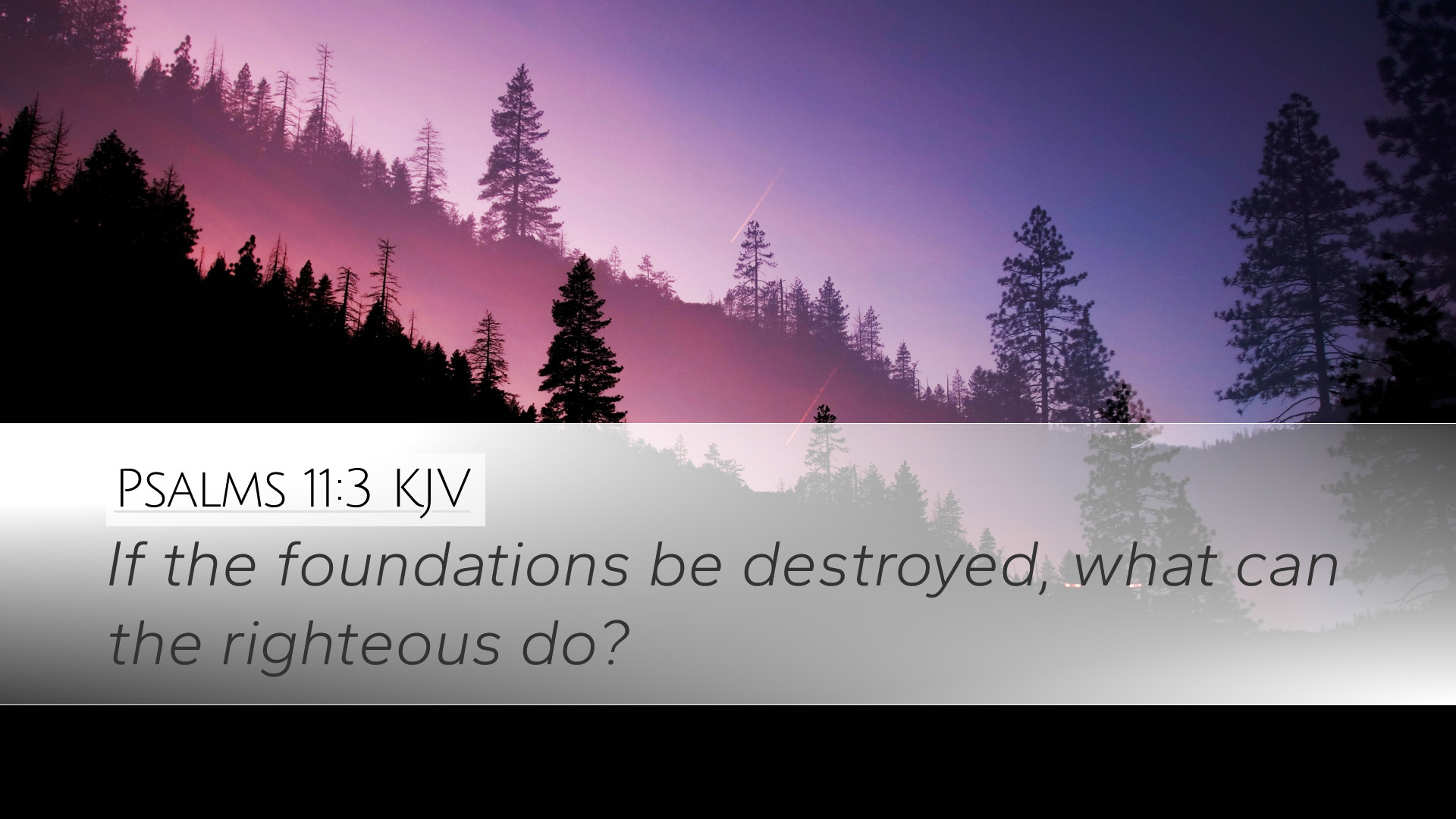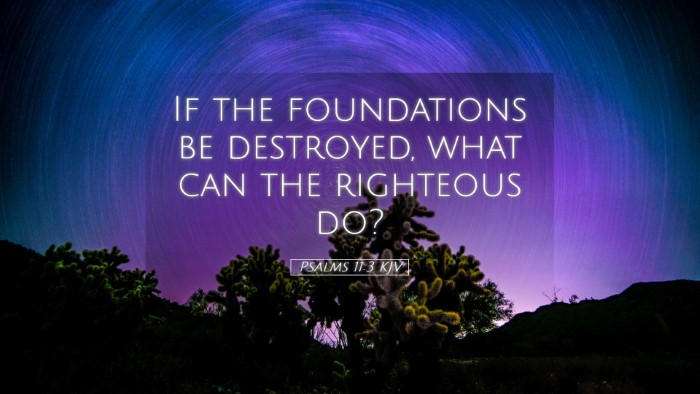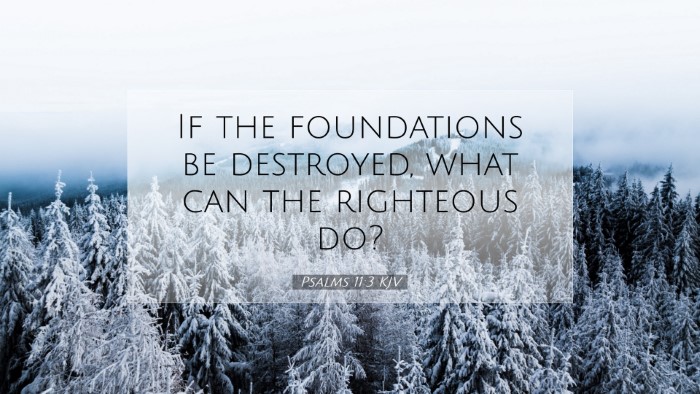Commentary on Psalms 11:3
Psalms 11:3: "If the foundations be destroyed, what can the righteous do?"
Introduction
This verse poses a critical question regarding the stability of spiritual, moral, and societal foundations. The Psalmist, David, reflects on the challenges faced by the righteous when the underpinning of society is compromised. In this exploration, we draw insights from respected public domain commentaries to elucidate its meaning and application.
Contextual Background
The context of Psalm 11 is one of turmoil and confusion, likely during a time of personal crisis for David. The opening verses articulate a plea for divine refuge amid adversities, where adversaries question the validity of trusting in God. Hence, when the foundations are in disarray, the implications for the righteous are severe.
Analysis of the Verse
The rhetorical nature of the question in Psalms 11:3 underscores a significant theological and practical reality.
- The Foundations: "Foundations" refer to the underlying truths and principles upon which a society, belief system, or moral structure is built. Albert Barnes emphasizes the importance of these foundations as being both spiritual and moral, suggesting that when they are eroded, society itself is at risk.
- The Righteous: The term "righteous" denotes those who uphold God’s laws and principles. Matthew Henry asserts that this group often finds itself in dire straits when the moral compass of society is lost, leading to questioning what actions they can take in such scenarios.
- The Question of Action: The phrase "what can the righteous do?" challenges the readers to consider their responses when societal norms conflict with divine commandments. Adam Clarke notes that this inquiry highlights a sense of helplessness but, importantly, opens the door to a reliance on God’s sovereignty.
Theological Implications
The theological depth of this verse invites a profound contemplation of God's sovereignty amid chaos. The commentary by Henry suggests that real hope for the righteous lies not in their ability but in their trust in God. When human institutions fail, divine providence prevails.
It illustrates how faith serves as a cornerstone for the righteous. Clarke points out that, despite the deterioration of societal foundations, there remains a resilient faith that can withstand trials. Thus, the righteous are encouraged to continue standing firm in their beliefs and practices.
Practical Applications
For pastors, theologians, and students of Scripture, Psalms 11:3 serves as a reminder of several practical considerations:
- Awareness of Cultural Shifts: Understanding the current climate in which morality and truth are frequently challenged is essential. Commentaries suggest that the righteous must discern and respond wisely to these shifts.
- Role of the Church: The church is called to be a stabilizing force in turbulent times. The commentaries suggest that the collective action of believers can help to reinforce the foundations of truth and morality in society.
- Individual Responsibility: Each believer has a role in ‘building up’ the foundations in their spheres of influence, reflecting faith through action. Clarke emphasizes that strong personal convictions rooted in scripture can impact the larger community.
- Dependency on Divine Power: As echoed in Henry's writings, the righteous are ultimately reliant on God, especially when faced with overwhelming odds. This dependency becomes evident in prayer, worship, and testimony in challenging times.
Conclusion
Psalms 11:3 captures a timeless struggle faced by the righteous in a world where the foundations of faith and morality can seem to be under siege. The insights gleaned from Matthew Henry, Albert Barnes, and Adam Clarke together emphasize the need for resilience, dependence on God, and active faith. In moments of crisis, the righteous are called not to despair, but to stand firm, trusting in God’s enduring foundation.


